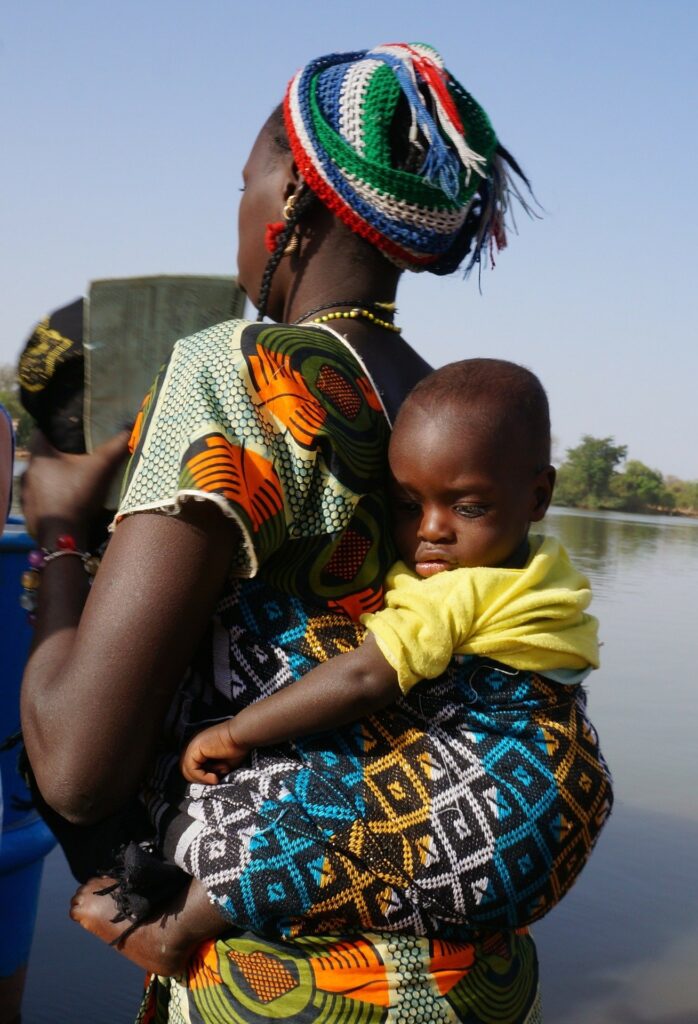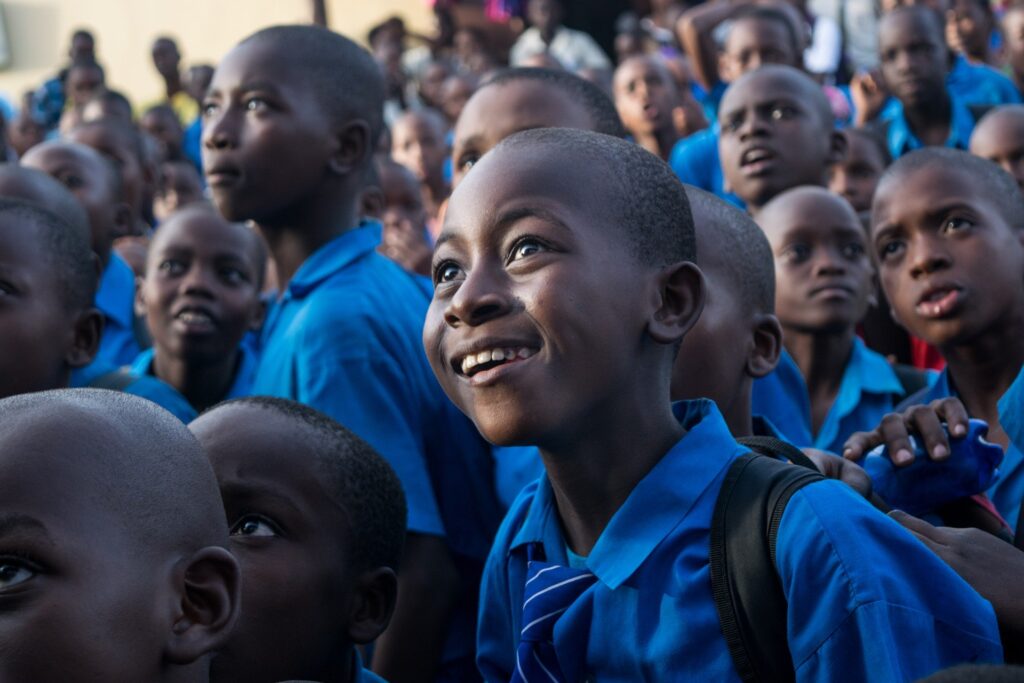When it comes to personality development, there are two major factors, genetics and childhood experiences. These two factors influence the five main traits that determine personality, Openness, Conscientiousness, Extroversion, Agreeableness, Neuroticism (OCEAN). Openness is a person’s level curiosity and enthusiasm to try out new experiences. Conscientiousness is a person’s level organization and responsibility, discipline, self-control and propensity to follow social norms. Extroversion, a person’s level of sociability, assertiveness and need for social interactions. Agreeableness, level of compassion, empathy, cooperativeness. Neuroticism, vulnerability to negative emotions, anxiety, depression, anger. Neurotic people tend to be very reactive and impulsive. Most of these character traits are passed on genetically, but childhood experiences can either alter or reinforce them.
The childhood phase is very vulnerable because, much as children are born with some of these traits already printed on their DNA, they are very docile. This makes them very malleable hence can be molded by their immediate environment. Children don’t have beliefs of their own, so they look up to the adults in their lives for guidance, and the adults don’t need to teach it to them directly. Children just watch the way the adults behave and treat them. They soon absorb their belief system, fears, limitations. Childhood is a phase in which a person’s mind is wired into a specific line of thought process and mindset thus most of the experiences you have during this phase dictate a bigger half of your adulthood life, both the positively and the negatively. Knowing what childhood experiences certain traits about you that you consider undesirable is a first step to self-improvement. Rather than blindly beating yourself up, you can understand why you developed such characters and steps you can take to develop better ones.

In a TEDX video, Cortney Warren states that adults are held back by their inability to admit how painful reality experienced as children affected their reality. Burying those negative thoughts and experiences is like plastering an open wound without even trying to assess the cause of the wound. However, Childhood experiences play a vital role in maturity and when unresolved can manifest in unhealthier ways. Some actions by guardians and care-givers that affect an individual’s later development are conspicuous, like physical abuse, sexual abuse, neglect. However, some actions are so subtle they can’t easily be pinned to the child’s later development as an adult, here are a few examples.
The woman who stays in an abusive relationship because she was brought up to think it’s okay to be assaulted by a man. In some cultures, in Africa, girls are brought up with the notion that it is okay to be beaten by a man. They actually go as far as to tell them, that it’s a sign of love and affection hence they grow up with that submissive mindset. A study in pabbo Camp Gulu district in northern Uganda showed that the general community perception was that sexual and gender based violence was ‘normal’ and only cases of rape and incest treated a bit more seriously.
Children who weren’t given enough attention as children grow up into attention seekers as adults. A study (Rees c. childhood attachment. Br J Gen Pract. 2007) shows that infants seek attention from adults positively by smiling and laughing, or negatively by crying. If attention isn’t given adequately as a child, it manifests in adulthood. Adults become attention seekers either constructively by becoming over-achievers always trying to prove themselves, or destructively by things like drugs and alcohol especially in the teenage ages. Attention seeking compensates for childhood neglect.

The child who is raised in a home where respect for older authoritative figures was overly emphasized grows up less assertive and more submissive especially in the face of authority. In the book ‘outliers’, Malcom Gladwell writes about an investigation that was done to find the root cause of the large number of Korean plane crushes back in 1990s. A plane usually has a pilot and a crew consisting of a co-pilot, flight engineer and others. The role of the crew is to monitor the pilot’s decisions especially when he gets tired. The co-pilot is usually less experienced, a rooky. After reviewing multiple black boxes of plane crushes, it was discovered that, the pilots were usually tired and started making mistakes and judgement errors. Such errors could have easily been spotted and pointed out by his crew, but here was the problem, the crew was usually timid when it came to correcting the main pilot because of their inferiority. A study found out that the Korean culture over-emphasized respect for superior authority right from home. This hindered communication between the pilot and his crew. Moments when they had to be firm and assertive when correcting the main pilot’s mistakes, they were timid and hesitant. Gladwell even quotes part of the conversation between the pilot and his flight-engineer, “Captain, the weather radar has helped us a lot.” Says the flight engineer. By that, what the engineer actually meant was “This isn’t a night where you can rely on just your eyes to land the plane. Look at what the weather radar is telling us: there’s trouble ahead.” These crews had all the knowledge and skills and yet they fell victim to their childhood upbringings, which was costing them thousands of lives as well as their own.
Other examples include, the little boy who grows up in a home where his parents are extremely critical, snapping and scolding at every small mistake he makes grows up into an insecure perfectionist, who is terribly self-judgmental, he is devastated every time anyone points anyone of his failures and shortcomings. The little girl who grew up in a home and saw her father abuse her mother grows up into a radical feminist who hates men and thinks they are all like her abusive father. The child who is raised by an over-protective mother grows up to be timid towards new experiences because they absorbed the fears and limitations. The child who was raised in a virtuous home where their early teenage sexual development was condemned as immoral, grows up afraid of their own erotic desires hence develop a complicated intimate life.

It’s no doubt that the childhood phase has a substantial stake on how people turn out as adults, the things you grow up seeing, the adults you grow looking up to, the idles you grow up emulating. Most serious flaws and neurotic dispositions are rooted to the childhood phase. This however doesn’t mean we are completely rendered helpless to our childhood wiring, change is always one decision away. ‘In seven Habits of highly effective people’, Steven Covey, highlights ‘Being proactive’ as one of the habits of highly effective people. It is to take full responsibility of one’s actions and behavior. Highly effective people don’t hold anyone accountable for their shortcomings but rather know that, much as they can’t reverse what happened to them as children, as adults they can now choose how they respond to it. Highly effective people are ‘response-able’ for their flaws and shortcomings.
As an adult you have to realize that no one is perfect, even your care givers tried to nurture you as best they could, and if they in anyway passed on some unhealthy traits and mindset, it is because they might have also picked them up from their own parents and guardians. They may also be victims of character traits and mindsets passed on through generations. The responsibility falls upon you to break the cycle.
A number of ways are available to recondition your mind. From scientific ways like psychotherapy, spiritual ways like prayer and meditation or social ways like talking to an adult or a counselor. But before all that, the first most basic, most important step is to humbly and with all honesty point out, accept and make peace with your flaws, especially those rooted to your childhood upbringing.

